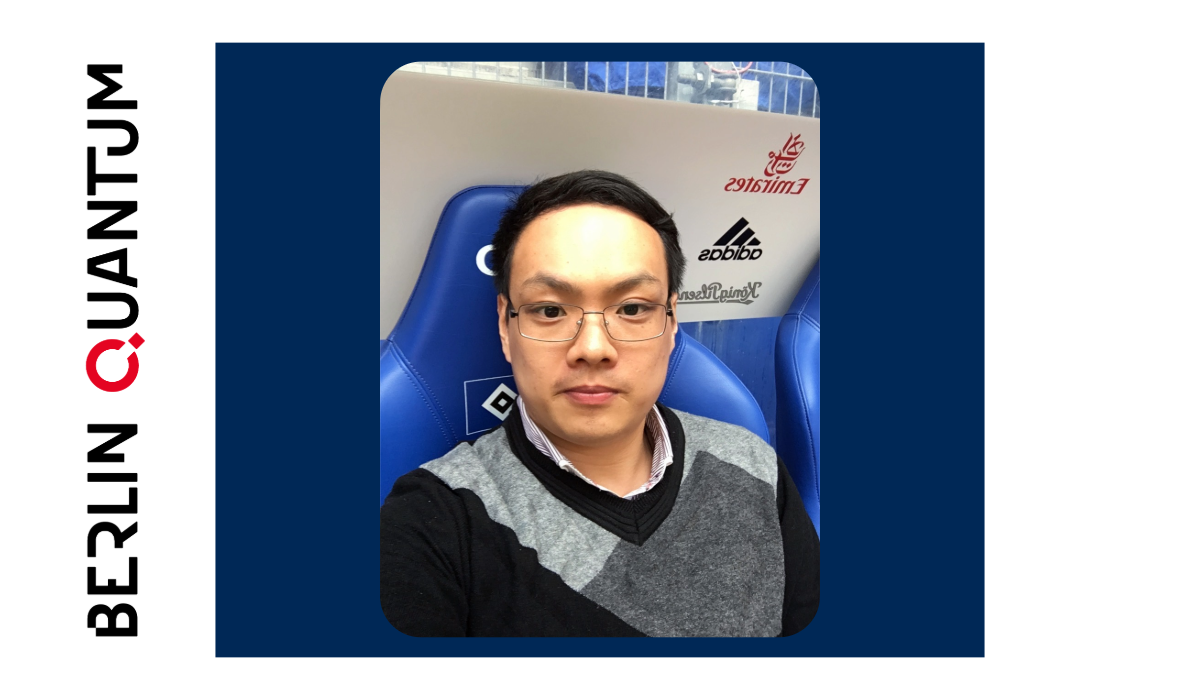How did you become interested in quantum physics?
My passion for quantum physics began in college when I took a course on quantum mechanics. The probabilistic interpretation of physics, which is absent in classical mechanics, truly blew my mind. As I delved deeper into quantum theory, I became captivated by how it challenges our intuitive understanding of reality.
During my Ph.D. program, I was involved in a project aimed at unveiling complex correlation effects in both few- and many-body quantum systems. I realized that I wanted to contribute both to uncovering the theoretical foundations and to advancing emerging quantum technologies. Pursuing a career in quantum physics allows me to explore the unknown and be at the frontier of discovery.
Why did you choose to conduct your research in Berlin?
I chose Berlin because it hosts one of the most vibrant quantum science communities in Europe. With institutions like Humboldt University, Free University, Technical University of Berlin, the Max Planck Institute, and the Berlin Quantum Alliance, there are exceptional opportunities for collaboration and access to world-class facilities.
Beyond science, Berlin is a city that blends rich history with modern creativity. It offers world-class museums and vibrant street art, creating a unique mix of past and present. Most importantly, its diverse communities and open-minded atmosphere attract people from around the world.
What advantages does Berlin offer for quantum physics research compared to other cities or countries?
As mentioned earlier, Berlin is home to world-class research institutions, providing access to cutting-edge labs, interdisciplinary research, and leading experts in quantum physics. It’s also highly international—English is widely used in academic settings, attracting top researchers globally.
Last but not least, the German and EU governments have committed billions of euros to quantum technology development. As the capital, Berlin is well-positioned to benefit from strategic funding, pilot programs, and startups emerging from university labs.
Can you tell us about a current project or experiment you are working on?
My current project, Quantum-Enhanced Sensing Using Open Quantum Systems, investigates the use of open quantum many-body systems as quantum sensors. Their dissipative nature makes them exceptionally robust against unwanted noise. Moreover, the steady state of an open quantum system is experimentally easy to prepare, making them ideal for sensing applications.
We focus on experimental platforms ranging from ultracold Rydberg atoms in microtrap arrays to quantum computing architectures based on trapped ions. Both platforms offer exceptional control over interactions and dissipation in quantum many-body systems. A key aspect of our work is understanding how residual noise sources affect quantum sensing performance.
How does BERLIN QUANTUM and the Berlin research landscape support your work?
BERLIN QUANTUM plays a vital role in supporting my research. It connects leading institutions, enabling close collaborations and shared resources. For my work in quantum-enhanced sensing, access to state-of-the-art experimental platforms, the regular Berlin Physics Colloquium featuring top international researchers, and interdisciplinary events like the BBQ have been incredibly helpful.
Additionally, Berlin’s broader research ecosystem, with its proximity to quantum startups, creates a unique environment that bridges fundamental research with real-world applications.
What role does collaboration play in your research?
Collaboration is essential to my research in quantum physics, and Berlin offers an exceptional environment for it. The density of leading institutions fosters constant exchange between theory and experiment.
I’ve worked closely with young researchers from Prof. André Eckardt’s group, who are involved in another BERLIN QUANTUM project. This collaboration has helped me integrate different approaches into my work. Through joint seminars and journal clubs facilitated by BERLIN QUANTUM, I’ve refined my methods and explored new research directions.
How does living in Berlin influence your personal and professional development?
Living in Berlin has significantly enriched both my professional and personal life. Professionally, being surrounded by world-class institutions and researchers means I’m constantly exposed to new ideas and opportunities.
Personally, Berlin’s openness, cultural diversity, and creative energy have broadened my worldview. I’ve met people from all over the world who have helped me become more adaptable, empathetic, and globally minded. The balance between intense academic work and the city’s rich cultural life keeps me grounded and motivated.
What are the most exciting developments in quantum physics in the coming years?
One of the most exciting trends is the progress toward fault-tolerant quantum computing. We’re moving from noisy intermediate-scale quantum (NISQ) devices to more stable architectures capable of solving meaningful problems. This could lead to breakthroughs in chemistry, logistics, and materials science.
I’m also intrigued by hybrid models that combine classical machine learning with quantum algorithms. There’s growing interest in using AI to optimize quantum experiments and interpret quantum data, which could drive both fundamental understanding and technological innovation.
Do you have a special experience or anecdote from your time in Berlin?
One of my most memorable experiences was a brainstorming session during the BOS.QT retreat in 2024. After a workshop, we met informally at a local spot, and a casual conversation turned into a spontaneous whiteboard session on quantum metrology. It was cross-disciplinary, energetic, and inspiring—an experience that truly reflects the collaborative spirit of Berlin’s research environment.
What advice would you give to young scientists considering a career in quantum physics in Berlin?
My advice is: stay curious, be patient, and don’t be afraid to ask questions. Quantum physics can be conceptually challenging, but that’s what makes it so rewarding.
If you’re considering Berlin, you’re in a great position. The city offers a rich research ecosystem—from theory to experiments and startups. Institutions are open to collaboration, and English is widely spoken. Most importantly, don’t wait until you feel “ready”—get involved early, stay engaged, and keep learning.

